
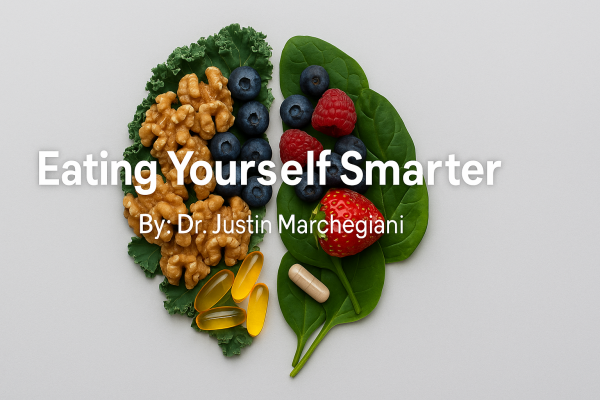
By Dr. Justin Marchegiani
Supporting your brain with the right foods and supplements is a powerful way to enhance memory, focus, and overall cognitive function. From essential fatty acids to potent antioxidants, this guide covers the top nutrients for “eating yourself smarter,” plus how functional medicine lab testing can fine-tune your approach.
Alpha-linolenic acid (ALA) is a plant-based omega-3 that your body can’t make on its own. Research suggests ALA boosts brain-derived neurotrophic factor (BDNF), a key molecule for neuron growth, learning, and memory. Incorporate olives, avocados, walnuts, and olive oil into your diet to raise ALA intake and support long-term brain health.
Learn more › (ALA & BDNF increase)
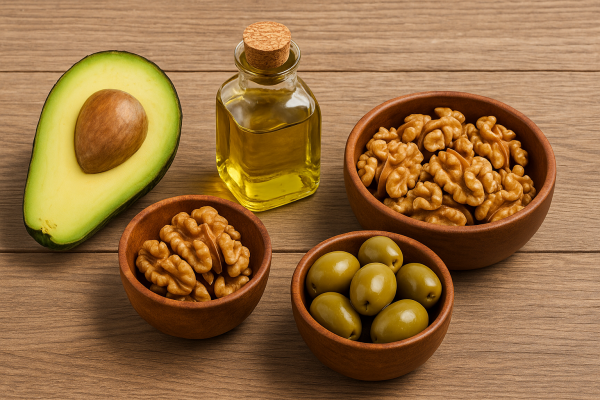
Known for emergency overdose treatments, activated charcoal acts like a sponge—binding toxins and heavy metals before they reach your brain. By reducing systemic toxic load, it may help prevent brain fog, low mood, and anxiety. Take away from meals and other supplements (at least 2 hours apart), but you can use it concurrently with a meal containing anti-nutrients or after alcohol to reduce toxin absorption.
Emergency use in toxin binding ›
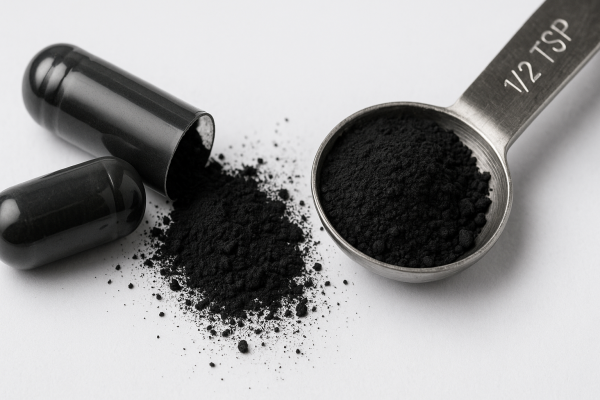
Butyrate is a short-chain fatty acid in grass-fed butter, cheese, and milk. It inhibits NF-κB activation in the gut, reducing systemic inflammation that can affect your brain. By calming neuroinflammation, butyrate supports clear thinking and protects against age-related cognitive decline.
Butyrate’s anti-inflammatory effects ›
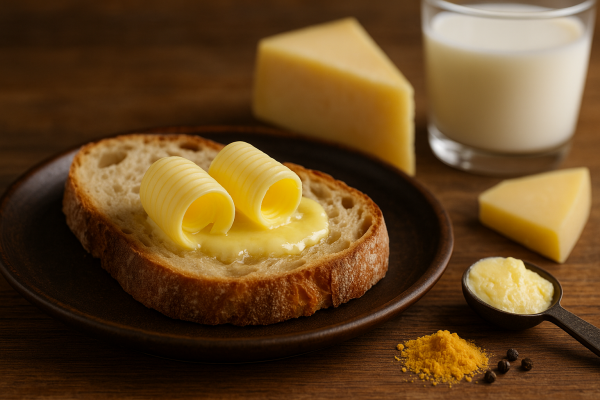
CLA, another fatty acid concentrated in grass-fed beef and lamb, enhances immune function and shields the brain from inflammatory damage. Regular CLA intake may boost resilience against stress-related cognitive impairment.
CLA & immune-brain protection ›

Coenzyme Q10 (CoQ10) serves as both an antioxidant and a coenzyme for mitochondrial energy production. Higher CoQ10 levels have been linked to a 77% lower risk of developing dementia in older adults. You can boost your levels through oily fish, organ meats, grass-fed beef, or a high-quality supplement.
Dementia risk reduction ›
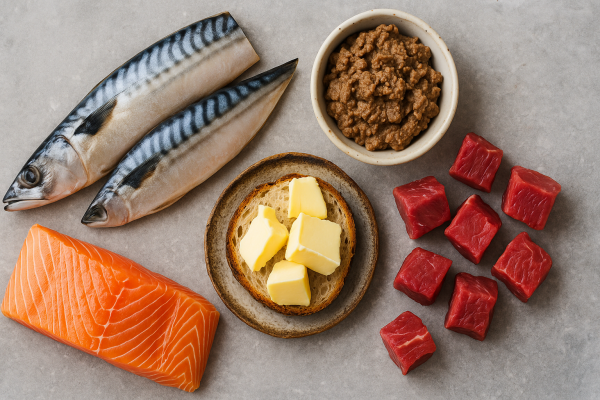
The active compound in turmeric, curcumin, is a potent anti-inflammatory and antioxidant. Studies show it may protect neurons, improve mood, and guard against Alzheimer’s and other neurodegenerative diseases. Enjoy turmeric when cooking, make a warm tea, or supplement it with a clinically studied extract.
Neuroprotective benefits ›
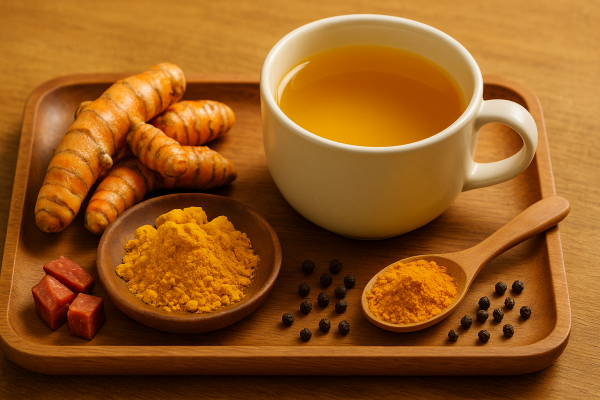
As the most abundant omega-3 in the brain, DHA supports membrane fluidity, neurotransmission, and cognitive performance. Low DHA is associated with ADHD, depression, and myelin sheath degradation. Aim for wild-caught salmon, anchovies, and pastured eggs for optimal absorption, or consider triglyceride-based fish oil.
DHA & cognitive health ›
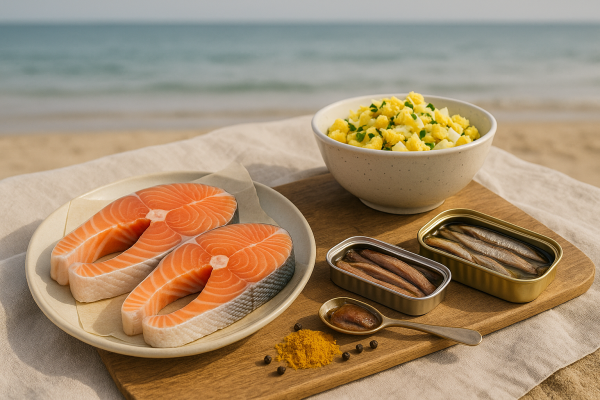
Dubbed the “master antioxidant,” glutathione neutralizes free radicals and recycles other antioxidants. Adequate protein intake (0.5–0.8 g/lb body weight) plus sulfur-rich foods like broccoli, cauliflower, and whey protein can elevate your body’s production. For direct support, sublingual or liposomal glutathione supplements offer superior bioavailability.
Glutathione’s antioxidant role ›
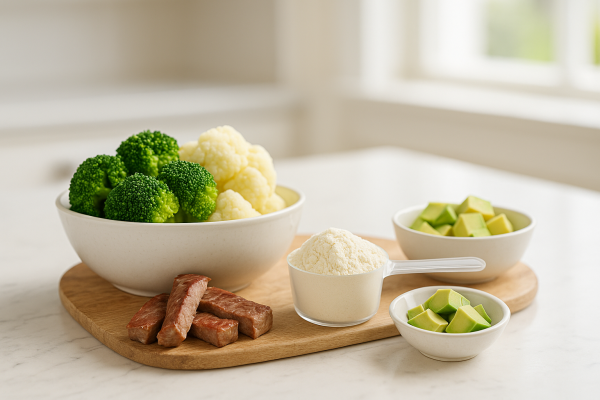
While diet and supplementation lay the foundation, lab testing reveals your unique biochemistry and uncovers hidden imbalances. Common tests include:
Omega-3 Index: Measures erythrocyte DHA + EPA, guiding personalized fish-oil dosing.
Organic Acids Panel: Assesses oxidative stress, mitochondrial function, and neurotransmitter metabolites.
GI-MAP Stool Analysis: Screens for dysbiosis, allowing targeted interventions that reduce gut-brain inflammation.
Heavy Metals Profile: This profile identifies toxic exposures, which is crucial if you frequently fly, eat seafood, or live near industrial zones.
Comprehensive Metabolic Panel & Homocysteine: Evaluates liver detox pathways and methylation efficiency, impacting glutathione production.
You can fine-tune nutrient dosages by pinpointing deficiencies or excesses, enhance absorption (e.g., pairing curcumin with black pepper extract), and prioritize the proper lab-backed protocols for sustained cognitive vitality.
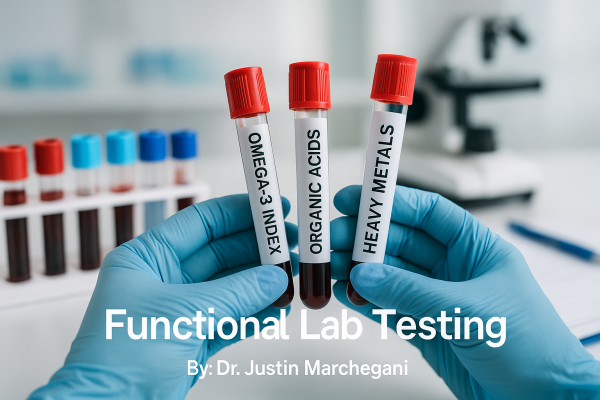
Supplements work best on top of a solid dietary and lifestyle foundation:
Whole Foods First: Prioritize pastured eggs, grass-fed beef, wild-caught fish, and leafy greens.
Movement & Sleep: Regular exercise and 7–9 hours of sleep support neurogenesis and toxin clearance via the glymphatic system.
Stress Management: Practices like meditation and deep breathing lower cortisol, preventing chronic inflammation that impairs cognition.
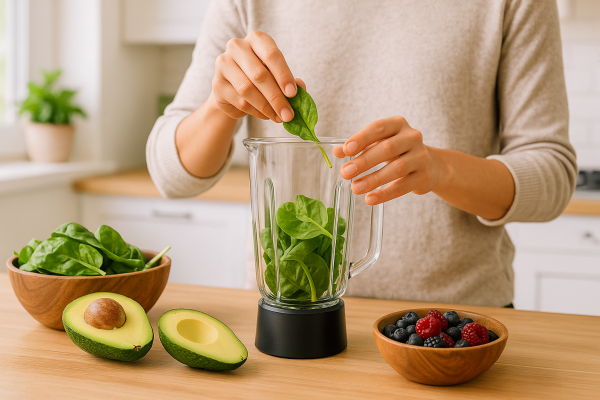
Combining nutrient-dense foods, targeted supplements, and personalized lab testing, your brain thrives. Ready to optimize your cognitive edge?
👉 Reach out to Dr. J and schedule a consult at www.justinhealth.com/free-consult
Johnson L, et al. ALA supplementation increases BDNF in humans. J Nutr Biochem. 2015; https://pubmed.ncbi.nlm.nih.gov/25620483
Lee YJ, et al. Activated charcoal for toxin binding: emergency applications. Clin Toxicol. 2011; https://pubmed.ncbi.nlm.nih.gov/20886881
Canani RB, et al. Butyrate inhibits NF-κB and reduces inflammation. Gut. 2014; https://pubmed.ncbi.nlm.nih.gov/24961311
Belury MA. CLA and immune-brain interactions. J Nutr. 2001; https://pubmed.ncbi.nlm.nih.gov/11686911
Beal MF, et al. CoQ10 levels and dementia risk reduction. Neurology. 2013; https://pubmed.ncbi.nlm.nih.gov/23633105
Ringman JM, et al. Curcumin neuroprotective properties. J Alzheimers Dis. 2011; https://pubmed.ncbi.nlm.nih.gov/21157688
Sinn N, et al. DHA and cognitive performance: a review. Prostaglandins Leukot Essent Fatty Acids. 2008; https://pubmed.ncbi.nlm.nih.gov/19262050
Allen J, et al. Glutathione: the master antioxidant. Nutr Rev. 2012; https://pubmed.ncbi.nlm.nih.gov/22650195
Activated Charcoal 560 mg 100 caps
Curcumin Supreme 60 caps
CoQ10 Synergy 60 softgel
GI Binder 60 caps
NAC Supreme 180 caps==================== IN CASE YOU MISSED IT:
Unlocking the Power of Vitamin D3: Your Guide to Health Benefits, Sources, and Supplementation
Top 5 Reasons Why You Need to Try an Infrared Sauna Now